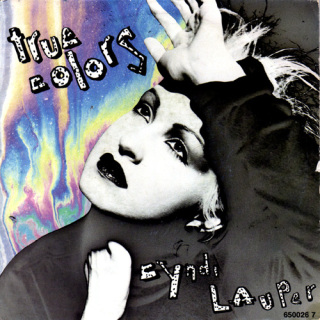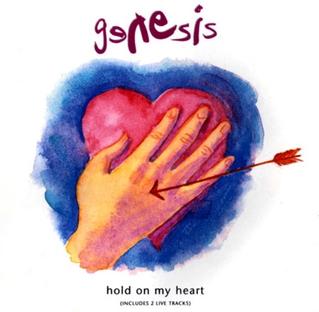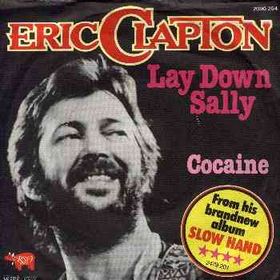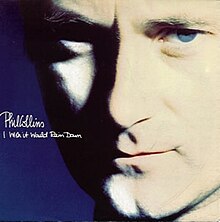
"Layla" is a song written by Eric Clapton and Jim Gordon, originally recorded with their band Derek and the Dominos, as the thirteenth track from their only studio album, Layla and Other Assorted Love Songs (1970). Its contrasting movements were composed separately by Clapton and Gordon. The piano part has also been controversially credited to Rita Coolidge, Gordon's girlfriend at the time.

...But Seriously is the fourth solo studio album by English drummer and singer-songwriter Phil Collins. It was released on 24 November 1989 in the United States by Atlantic Records and on 20 November 1989 in the United Kingdom by Virgin Records. After Collins finished touring commitments with the rock band Genesis in 1987, the group entered a four-year hiatus, during which Collins starred in the feature film Buster (1988). By the spring of 1989, Collins had written material for a new solo album, which addressed more serious lyrical themes, like socio-economic and political issues, as opposed to his previous dance-oriented album, No Jacket Required (1985).

"Knockin' on Heaven's Door" is a song by American singer-songwriter Bob Dylan, written for the soundtrack of the 1973 film Pat Garrett and Billy the Kid. Released as a single two months after the film's premiere, it became a worldwide hit, reaching the Top 10 in several countries. The song became one of Dylan's most popular and most covered post-1960s compositions, spawning covers from Eric Clapton, Guns N' Roses, Randy Crawford and more.

"White Room" is a song by British rock band Cream, composed by bassist Jack Bruce with lyrics by poet Pete Brown. They recorded it for the studio half of the 1968 double album Wheels of Fire. In September, a shorter US single edit was released for AM radio stations, although album-oriented FM radio stations played the full album version. The subsequent UK single release in January 1969 used the full-length album version of the track.

"Badge" is a song written by Eric Clapton and George Harrison, and recorded by British rock music group Cream on their final album, Goodbye. Also issued as a single in March 1969, "Badge" peaked at number 18 in the UK Singles Chart and number 60 on the US Billboard Hot 100 chart.

"Tears in Heaven" is a song by English guitarist, singer, and songwriter Eric Clapton and Will Jennings, written about the death of Clapton's four-year-old son, Conor. It appeared on the 1991 Rush film soundtrack. In January 1992, Clapton performed the song in front of an audience at Bray Studios, Berkshire, England for MTV Unplugged, with the recording appearing on his Unplugged album.

"Wonderful Tonight" is a ballad written by Eric Clapton. It was included on Clapton's 1977 album Slowhand. Clapton wrote the song about Pattie Boyd. The female vocal harmonies on the song are provided by Marcella Detroit and Yvonne Elliman.

Hits, is the first greatest hits album by English drummer and singer-songwriter Phil Collins. It was released on 5th October 1998 in the UK, and one day later in the United States. The collection included fourteen top 40 hits, including seven American number one songs, spanning from the albums Face Value (1981) through Dance into the Light (1996). One new Collins recording, a cover of Cyndi Lauper's "True Colors", also appeared on the collection and was a popular song on adult contemporary stations. Hits was also the first Phil Collins album to include four songs originally recorded for motion pictures as well as his popular duet with Philip Bailey, "Easy Lover".

"After Midnight" is a rock song by J. J. Cale, first released in 1966. Eric Clapton later covered it for his eponymous album, released in 1970. Clapton's rendition became a success, prompting Cale to re-record the song for Cale's 1971 album Naturally. In 1987, Clapton later re-recorded the song for a Michelob beer commercial and then released the re-recording as a single. "After Midnight" has been considered one of Clapton's signature songs throughout his career. Other artists covered the song in later years.

"No Son of Mine" is a song by British rock group Genesis, released as the lead single from their 14th album, We Can't Dance (1991). The song reached No. 6 on the UK Singles Chart and No. 12 on the US Billboard Hot 100. It was also a top-10 hit in several European countries and peaked atop Canada's RPM Top Singles chart for five weeks.

"True Colors" is a song written by American songwriters Billy Steinberg and Tom Kelly. It was both the title track and the first single released from American singer Cyndi Lauper's second album (1986). Released late in the summer of 1986, the song would become a major hit for Lauper, spending two weeks at number one on the US Billboard Hot 100, becoming her last single to occupy the top of the chart. It received a Grammy Award nomination for Best Female Pop Vocal Performance.

"Change the World" is a song written by Tommy Sims, Gordon Kennedy, and Wayne Kirkpatrick and recorded by country music artist Wynonna Judd. A cover version was recorded by English singer Eric Clapton for the soundtrack of the 1996 film Phenomenon. Clapton's version was produced by R&B record producer Kenneth "Babyface" Edmonds.

"Hold on My Heart" is a song by English rock band Genesis from their 14th studio album, We Can't Dance (1991). The ballad was released as the album's third single on 6 April 1992. The song reached number one on the Canadian RPM Top Singles chart, the RPM Adult Contemporary chart, and the US Billboard Adult Contemporary chart, as well as number 12 on the Billboard Hot 100. In the band's home country, the song peaked at number 16 on the UK Singles Chart.

"My Father's Eyes" is a song written and performed by Eric Clapton and produced by Clapton and Simon Climie. It was released as a single in 1998 and was featured on the album Pilgrim. The song reached the top 40 on the Billboard Hot 100 Airplay chart, peaking at number 16, which remains his last top-40 hit in said country as of 2023. It also spent five weeks at number two on the Billboard Hot Adult Contemporary chart. It became a top-five hit in Canada, where it peaked at number two, and reached the top 20 in Austria, Iceland, and Norway. In 1999, it won a Grammy Award for Best Male Pop Vocal Performance.

"Lay Down Sally" is a song performed by Eric Clapton, and written by Clapton, Marcy Levy, and George Terry. It appeared on his November 1977 album Slowhand, and reached No. 3 on the Billboard Hot 100 chart.

"Bad Love" is a song recorded by English singer and guitarist Eric Clapton, who co-wrote it with Foreigner's lead guitarist Mick Jones. The track was released in the UK in January 1990 as the first single from Clapton's 1989 studio album Journeyman.

"Something Happened on the Way to Heaven" is a song by English drummer Phil Collins, released in April 1990 from his fourth studio album, ...But Seriously (1989). The song peaked at No. 4 on the US Billboard Hot 100 the week of October 6, 1990 and No. 15 on the UK Singles Chart. A live version also appears on the Serious Hits... Live! album. The song is often identified by the recurring hook of "How many times can I say 'I'm sorry'?".

"Do You Remember?" is a song performed by Phil Collins released in 1990 as one of the singles from his album ...But Seriously. It was produced by Collins and Hugh Padgham and features singer-songwriter Stephen Bishop on the track as a backing vocalist. The song had minor success in European countries but went to number one on both the Canadian and US Adult Contemporary charts. It also peaked at number four on the US Billboard Hot 100, becoming his 14th and last top-ten hit.

"I Ain't Gonna Stand for It" is the second single from Stevie Wonder's 1980 album, Hotter Than July. It reached number four on the Billboard R&B singles chart and number 11 on the Hot 100. It also hit number 10 on the UK Singles Chart. The song is famous for Wonder's imitation of a seasoned country-and-western crooner and his inspiring drumming. Charlie and Ronnie Wilson of The Gap Band provide backing vocals on the song. It was covered by Eric Clapton in 2001.

"Promises" is a single released by the British rock musician Eric Clapton in September 1978. It is part of his studio album Backless.




















